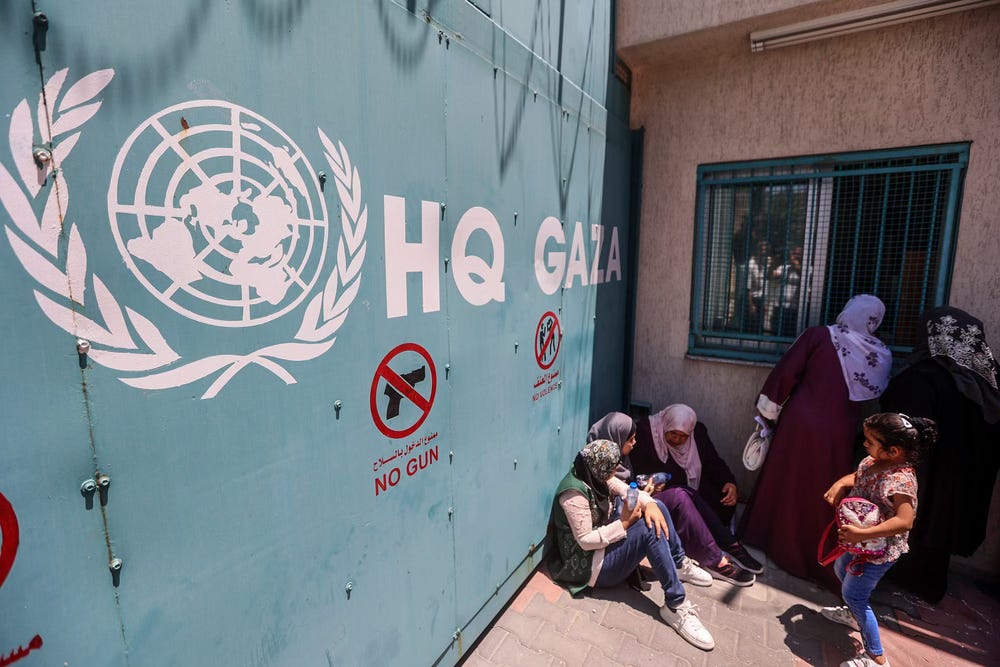Fears grow over potentially devastating impact of Israel’s UNRWA ban
Aid groups have urged the international community to prevent Israel from banning an agency that “millions of Palestinians rely on for their daily survival.”
“There is no viable alternative to UNRWA,” over 50 aid groups have warned in a joint statement, as they urged the international community to intervene to prevent Israel from banning an agency that “millions of Palestinians rely on for their daily survival.”
The plea comes after Israel’s parliament voted last night to ban the UN relief and works agency in the country within 90 days, labelling it a terror organisation.
The legislation will essentially bar UNRWA from operating in Israel and annexed East Jerusalem, and severely curtail its ability to work in the occupied West Bank and Gaza. A move that the UNRWA said today would be a breach of Israel’s obligations under international law and cause the supply chain of aid to Gaza to “fall apart”.
Israel’s allies have echoed this sentiment, with US state department spokesman Matthew Miller warning: “There’s nobody that can replace [UNRWA] right now in the middle of the crisis”. Sir Keir Starmer added that the move risks “jeopardising the entire international humanitarian response in Gaza”.
UNRWA, founded in 1949 to provide aid to displaced Palestinians, provides health care, education and other basic services to around 1.7 million Palestinian refugees in the Gaza Strip and 870,000 in the West Bank and East Jerusalem. It is the biggest UN agency operation in Gaza and other charities present in the strip, such as Unicef, label UNRWA the “backbone” of their own logistical operation on the ground.
However, its decades-long thorny history with Israel came to a head back in January, when Israel accused 12 UNRWA members of directly taking part in Hamas’s October 7 attack. The UN investigated the claim, resulting in it firing nine of the staff members accused, though it did not specify what their precise involvement had been.
As for Israel’s broader allegation that hundreds of staff who work for UNRWA have ties to either Hamas or Palestinian Islamic Jihad, UNRWA said that Israel has not provided any evidence of such claims to the UN-appointed review, and insisted that any of its own dealings with Hamas, which governs Gaza, is purely to enable the agency to do its job.
Donors who suspended funding to UNRWA after Israel brought the allegations against the agency back in January – including the US, UK, Finland, Germany, Switzerland, Japan, Australia and Italy – have all since resumed it, bar the US.
While complications in delivering life-saving aid will be the immediate humanitarian concern of a potential UNRWA ban in the strip, the implications for education are also significant, given that the agency runs 183 schools across the Gaza Strip. That UNRWA is involved in providing educational materials is another reason why the it has been subject to fierce political headwinds since its inception. Israel objects to many of its textbooks, saying they encourage Palestinian militancy.
UNRWA Commissioner-General Philippe Lazzarinin warned today that a ban on the agency’s operations in the strip “will deprive over 650,000 girls and boys there from education, putting at risk an entire generation of children”.
While US officials have voiced their opposition to legislation that will cripple UNRWA’s ability to operate in the Gaza Strip, the reality is that no major action against Netanyahu’s government is likely to come before the US election. Three months is the existing timetable for the implementation of this piece of legislation, by which time we will have a new president sitting in the Oval Office. One who will likely remain the only person with any real power to persuade Israel to reconsider its ban.



